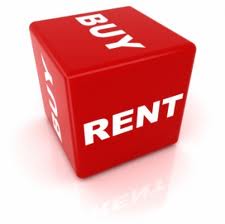
The homeownership/renting debate has gotten fierce in recent months, but a new chart may have settled the dispute.
A new chart of analysis has reinvigorated the homeownership vs renting debate, with another nod of economic approval heading for the homeowners’ corner.
Assembled by analyst Ben Walsh for Felix Salmon of Reuters, the chart uses the most recent data from the U.S. Census Bureau on rental vacancies and homeownership, and it charts the average mortgage payment with the average cost of rent.
Rents, as expected, have risen steadily the past couple decades, immune to market shocks and speculative bubbles, while mortgage payments, as we all well know, followed a similar (if more erratic) trajectory until 2004, when they spiked dramatically. Since 2007, payments have fallen as fast as they rose, and in the last year, are actually lower than the average cost of renting, which has risen at the same time.
As Salmon wrote in a blog entry accompanying the chart, that is quite the development.
“[T]hanks to ludicrously low mortgage rates below 9% 4%, that number is now lower than the median national rental price,” Salmon wrote. “This is the first time that’s happened since 1988, and probably for quite some time before that, too.”
However, as Salmon notes, this is not the first time that analysts have noticed an inverted relationship between renting and owning costs. David Leonhardt reported similar findings two years ago for the South Florida, Phoenix and Las Vegas markets, which at the time were engulfed in foreclosures and delinquent mortgages.
“I wasn’t completely convinced, but over the past two years, prices have continued to fall, while rents have continued to rise — sometimes painfully so,” Salmon writes, an especially interesting statement considering that, just last year, he was still a skeptic of buying a house.
Steve Lawrence, the branch manager for the Libertyville office of Baird & Warner, said he has encountered clients who are also surprised by the rent/mortgage relationship. Upon that realization – that they can purchase a property for less money than rent – he said they are often dissuaded from renting and instead become first-time homebuyers.
Michael Parent, the broker manager for Coldwell Banker Residential Brokerage in Saint Charles and President-elect of MORe, said he has witnessed similar situations in his area, where clients initially think they either could not afford or qualify for a mortgage. By simply asking the client, though, “Have you thought about buying?” Parent said agents are able to open the doors to a new realm of possibilities for the client.
Some of those possibilities, Parent added, are unbelievable. For instance, he just had a recent transaction for a condo unit in Naperville where the client’s mortgage payments were less than the condo association’s fees. Such deals, he said, have been a big boon for first-time buyers.
“We are seeing that first-time buyer jump out there more,” Parent said.
And those first-time buyers, Lawrence said, are a more responsible lot. From 1997 to 2006, Lawrence said the traditional progression of homeownership, which involved buying a small home, paying off the mortgage, and then upgrading to a larger property, ceased to exist, and buyers were too quick to overbuy and then grapple with an overbearing mortgage. But now, with home values growing sideways and interest rates at historic lows, Lawrence said the trend has reversed, and responsibility is once again a trademark of the first-time buyer.
“We’re seeing a lot more responsibility from the first-time buyer,” he said.
Salmon also mentions an underlying fact of the chart. Homes for sale are traditionally larger and more valuable than homes for rent, so in other words, housing is really, really affordable in the present market. And thanks to those aforementioned interest rates and long-term financing, not only will mortgage payments be less than renting – homeowners could even buy a house and rent it for a profit, with how single-family rents continue to rise.
“Of course, not all markets work this way: around New York, there are lots of places where it’s still a lot cheaper to rent than to buy,” Salmon writes. “But if rental prices are a good gauge of the value of housing — and I think they are — then I think we might finally have reached the point at which most Americans are getting good value when they buy a house.”